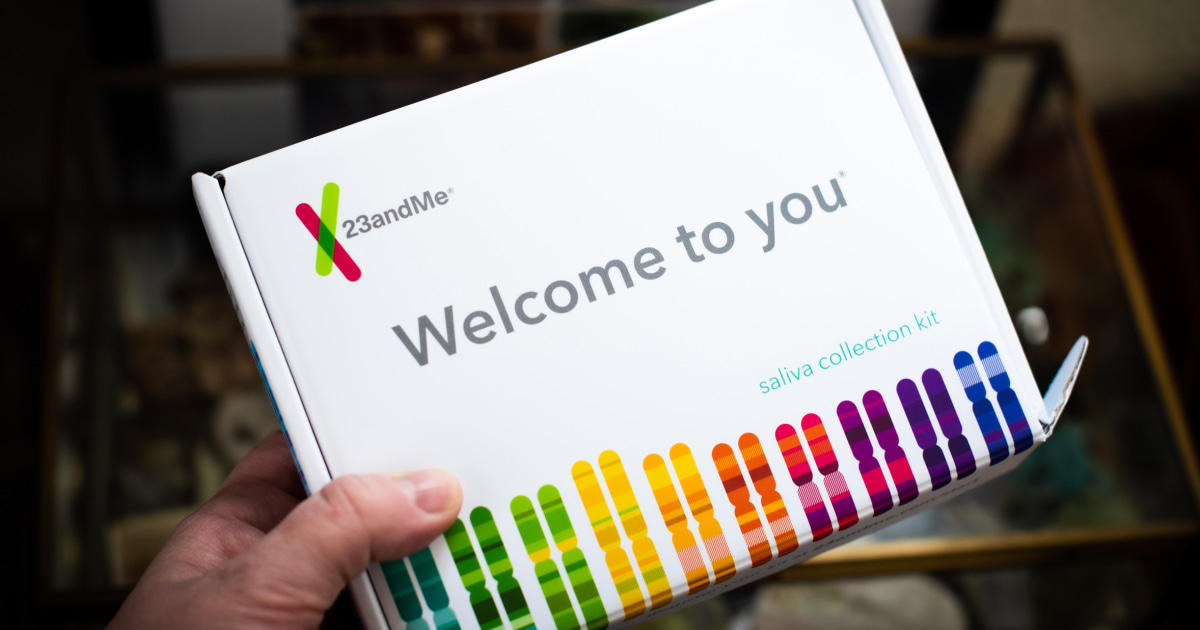Genetic testing company 23andMe said Monday that hackers were able to access the data of about 6.9 million people, far more than the company previously acknowledged.
The finding is the result of an investigation 23andMe launched in October, after at least one list of people whom the site identified as having Ashkenazi Jewish ancestry was posted online.
If I needed anymore convincing that you shouldn’t just give your genomic data away forever to shady companies for “FuN tRiViA” about your ancestry, this is certainly it
No one could ever explain to me what the point of these are, except that they can say now that they are 11% Italian. It’s like a online iq test with spit.
i dunno a lot of history is about human diaspora for different reasons. people are allowed to be interested in their history and shouldn’t have to worry about this kind of bullshit
You can be interested in your IQ, that doesn’t mean taking an facebook IQ test is the right play
I think 23nMe looks into genome related predisposal to health issues. Like “this sequence here is related to high probability of pancreatic cancer” or some bullshit like that.
In the hands of hackers, I guess it could be used to target individuals for highly specific scams or something like that. That’s only what I can think of though. Who knows what they’ll use it for and if it even has identifiable personal info past just ancestry.
The tinfoil hat theory is that this info could be used to charge extra for insurance premiums/denial of coverage…
In Canada it’s more like 11% First Nations, Inuit or Metis … so white people can play pretendian.
After my gma and gpa had Alzheimer’s, we (mom, me, brother) did it to see if we had the genetic markers for increased risk for the disease.
Bonus: we also found out we have a half sister on Dad’s side that we did not know about that was born the year after Mom and dad divorced, and Dad also didn’t know about her,. or so he says. So that was informative.
Can you even do anything if you know you have a chance to get alzheimer, othe rthan knowing it?
Hope for medical advancement, mostly. However, there is positivity and purpose in knowing. I now know that I have one of two markers and my risk is elevated compared to the average person. Working to keep my mind sharp and healthy should be a higher priority for me now. We are learning more about this stuff as the time. Knowing is always better than ignorance.
Who can have possibly have foreseen this happening repeatedly?
If you have a pile of gold it can only be stolen once. After that you no longer have it. If you have data it can be “stolen” an infinite number of times since each time you still have it.
I really wish I lived in a world society where this would not be a big deal and would actually be less likely to happen because there was no financial incentive to it.
Is that the world where everyone’s genome is openly available anyway or what scenario do you imagine?
nope. a post scarcity world where the only reason someone would want the information is for specific purposes like a doctor or just a nosey snoop. Basically a world where anyone who would want to know would likely not be inclined to take the necessary work to bypass token safeguards.
I like that perspective. But I’m not sure we’ll ever reach s state of post scarcity where people don’t cheat in their partners and produce offspring that way and that not causing drama.
yeah that is what I meant though. those kind of things would either be legitamate (court order) or it would be a rare individual who both had the motive and the skill to get past token safeguards. I mean these breaches are usually done by teams looking to make money (or sow discord although in that case its like money and discord they want)
Is anyone here not aware they’ve already been selling that data to insurance companies and who knows who else?
Yaaaaay my dad with a horrible genetic disease did this shit I’m never going to be able to get life insurance ever
Bonus points if you’re living in a country where mortgage must come with a life insurance as a risk mitigataion - NOW YOU’LL NEVER OWN A HOUSE - YAAAYYY.
Australia, right? Nanny state.
One of those events you could see from afar. It’s almost non news. You create a treasure trove of data, you can be sure it will be targeted and eventually, stolen.
You are correct. Wait until one of the really large data collectors gets hacked, i.e. Google, Meta, etc. It’s not if, but when.
Ni.ce
deleted by creator
Nice.









